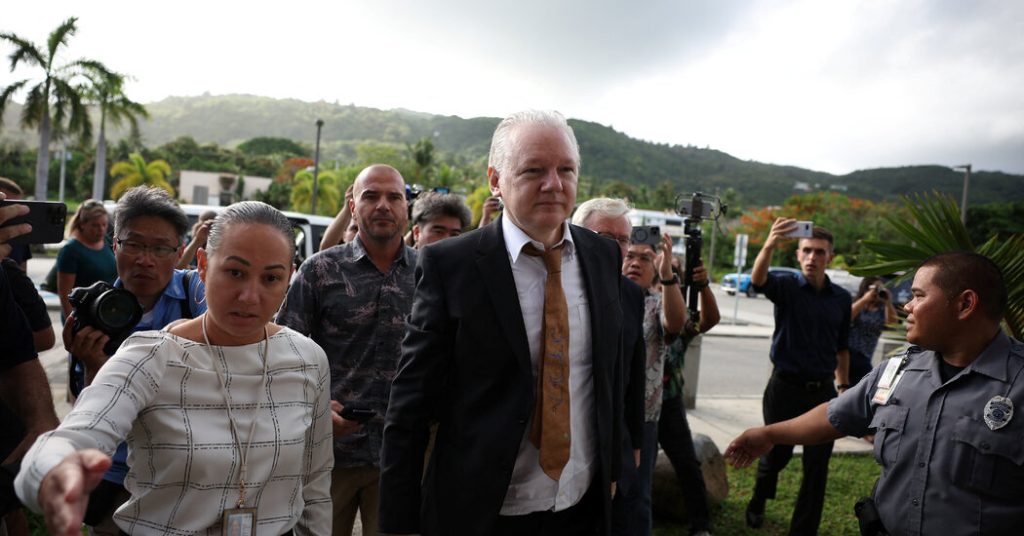Julian Assange, the founder of WikiLeaks, recently received a hero’s welcome upon his return to his home country of Australia after pleading guilty to a felony charge of violating the U.S. Espionage Act. Australian politicians rushed to show their support for him, with even the former prime minister, who is now Australia’s ambassador to the United States, joining him in the courtroom in the Northern Mariana Islands where his case was concluded. Assange, known for publishing classified documents revealing U.S. spycraft and civilian casualties during the Iraq and Afghanistan wars, was seen as a divisive figure in the past, but has now gained more support in Australia after being imprisoned in Britain for five years.
Prime Minister Anthony Albanese of Australia welcomed the court proceedings that freed Assange, calling it a “welcome development,” regardless of one’s views on his activities. However, critics argue that Australia’s espionage laws are harsh, with weak protections for journalism and whistleblower protection laws. Despite this, there was broad political support for Assange, with Greens and Labor lawmakers joining conservative leaders in advocating for his release. His case became more of a humanitarian issue in Australia, as he was perceived to have been mistreated.
Concerns about protecting accountability journalism, a major issue in the United States where free speech is constitutionally guaranteed, did not carry the same weight in Australia, where there is no such protection. Australians were more focused on the implications of Assange’s case for Western hypocrisy in the handling of political prisoners. The American criminal justice system was also questioned by Australians, who viewed it as too punitive and performative, leading to doubts about Assange receiving a fair trial from the Department of Justice. Secretary of State Antony J. Blinken’s comments further fueled resentment towards American exceptionalism.
The relationship between Australia and the United States has been marked by ambivalence, and Assange’s case has highlighted this sentiment. Australians, particularly conservative Anglo-centric individuals, have experienced resentment towards America displacing the British Empire after World War II. The continued prosecution of Assange has been viewed as vindictive, prompting calls for the United States to show more humility. Australian politicians from both sides of the spectrum celebrated Assange’s release but acknowledged that the victory may be short-lived. Concerns remain about future leaks potentially revealing secrets about Australia or taking sides in controversial issues that may not align with popular opinion.
The broader implications of Assange’s actions, such as helping Trump and Putin and putting lives at risk, have been overshadowed in the Australian debate. Despite these concerns, Assange’s release has been viewed as a positive development in terms of challenging American exceptionalism and encouraging greater humility in the U.S. government. Moving forward, the impact of Assange’s activities on Australian politics and relationships with the United States will be closely monitored to see if any new revelations or actions by WikiLeaks may cause further controversies.








